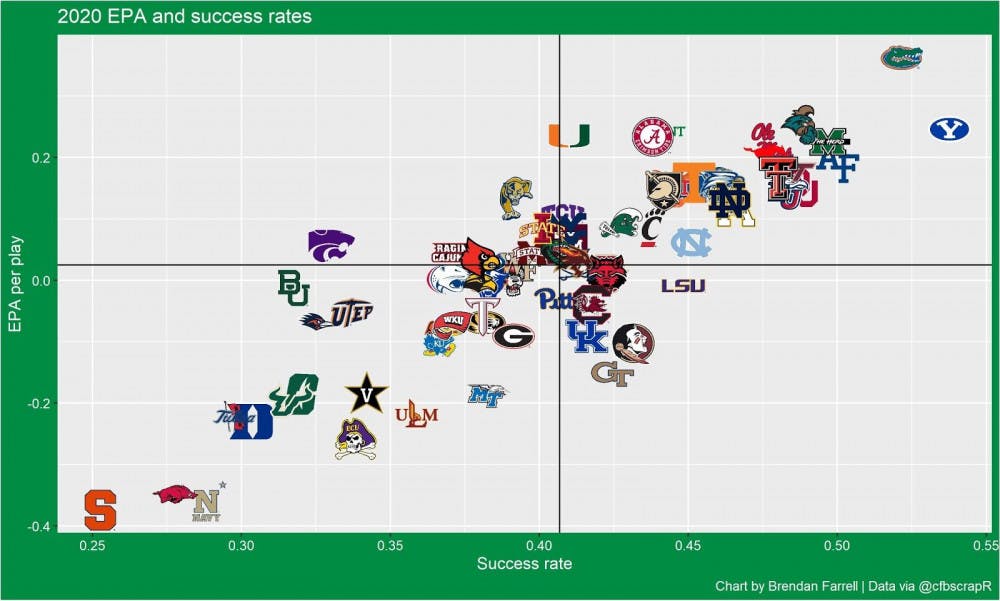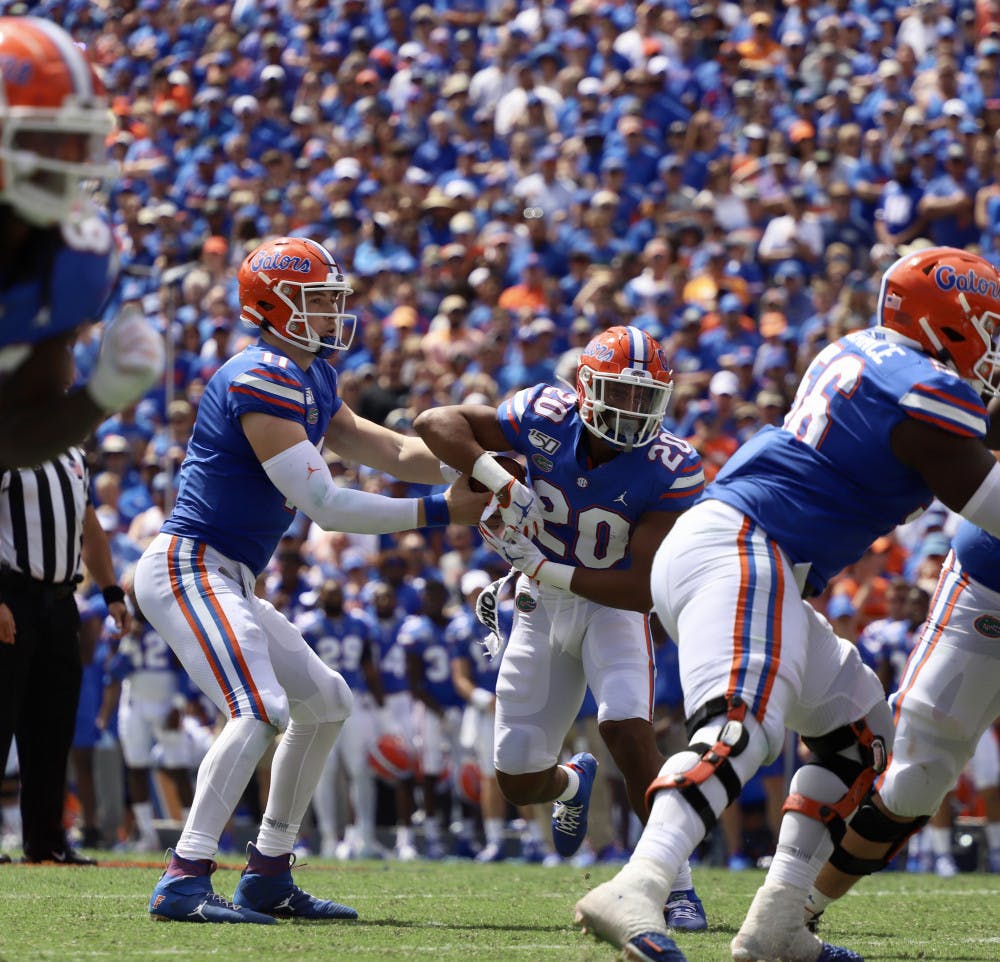Florida’s recent battles with former coach Will Muschamp and his South Carolina Gamecocks haven’t always been easy. While the Gators are 3-0 against USC under coach Dan Mullen, the previous two meetings weren’t exactly easy wins.
In 2018, Florida needed a 17-point comeback in the second half to survive 35-31. A year later, the Gators trailed by three heading into the fourth quarter before winning 38-27.
Fortunately for UF, its high-octane offense came out firing early and often in its most recent bout with the Gamecocks, and the Gators won 38-24. Here are some statistical takeaways from Saturday’s game:
Trask in control
It was once again the Kyle Trask show on Saturday, as the Texan completed 21 of his 29 passes for 268 yards, four touchdowns and an interception. That was enough to post a QBR of 91.3, a slight downgrade from his 93.4 the week prior.
To put that in perspective, Trask had two starts with a QBR over 90 all last season. Trask ranks third in the country and in the SEC in QBR, behind Alabama’s Mac Jones and Georgia’s Stetson Bennett IV.
It’s clear that Trask has the offense rolling. Expectations were high for Florida’s offense heading into the season, but it has surpassed them so far. The Gators are averaging 7.6 yards per play this season, tying them with Alabama for second in the country behind BYU.
Looking at Expected Points Added (EPA), which estimates the value of individual plays, the Gators are lighting up the scoreboard. Florida’s EPA per play of 0.38 laps the rest of the country — North Texas is second with 0.27 — and the Gators’ EPA per pass of 0.53 is second only to Coastal Carolina (0.69).

Against the Gamecocks, Florida was unbelievably efficient at finishing drives. The Gators went five for five in the red zone on Saturday with four touchdowns.
UF’s other strength offensively as of late is staying “on schedule.” About 56 percent of its plays on offense Saturday were deemed “successful.” Successful plays are first downs that pick up 50 percent of the needed yardage for a first down, second downs that gain at least 70 percent and third and fourth downs that result in a first down. This included a first quarter where Florida pummeled USC with a success rate of 85 percent and 14 points.
After Saturday, BYU, a program that hasn’t played a team in the top 70 of ESPN writer Bill Connelly’s SP+ rankings, is the only team with a higher success rate (53.7) than the Gators (52.1).

Defense coming into form, kind of
Suffice to say, last weekend didn’t leave the Gators defense much room for regression. Usually, facing a Will Muschamp-led team is a remedy for a bad defense. While the results weren’t as flashy as the Gator faithful wanted, UF was much better on the defensive side of the ball against South Carolina.
For one, the Gators limited USC to just four yards per play — a significant improvement from when they allowed 7.9 yards per play against Ole Miss. South Carolina quarterback Collin Hill averaged only 4.5 yards per attempt against Florida, and he posted a mediocre QBR of 51.4.
Florida held the Gamecocks to a pitiful -0.03 EPA per play, and a middle-of-the-road success rate of 47 percent. Two of South Carolina’s three touchdown drives started in Florida territory after turnovers.
The issue for the defense was that it couldn’t get off the field. While Florida’s defense only allowed two third-down conversions on 10 attempts in the second half, it also gave up five fourth-down conversions. USC was particularly good on the ground, achieving a success rate of 54.5 percent on rushing plays.
South Carolina’s strategy of keeping the clock running, slowly picking up first downs and limiting the number of possessions for Florida’s offense has worked before — Georgia coach Kirby Smart has done it to UF the last two years in Jacksonville — but it also made Saturday’s game look closer than it actually was. After a potent first half for UF’s offense, it only had 22 plays in the second half.
CollegeFootballData.com gave the Gators a post-game win expectancy of 100 percent, meaning that, given Florida’s performance, a team that posts those numbers is expected to win 100 percent of the time. This is the type of performance that one would see against an FCS opponent or Vanderbilt.
After a season-opening game where the team was still trying to get its feet wet, the Gators were prepared for South Carolina, and it showed.
Contact Brendan Farrell at bfarrell@alligator.org and follow him on Twitter @Bfarrell727.
Quarterback Kyle Trask's performance against the Gamecocks last weekend earned him a QBR of 91.3.






